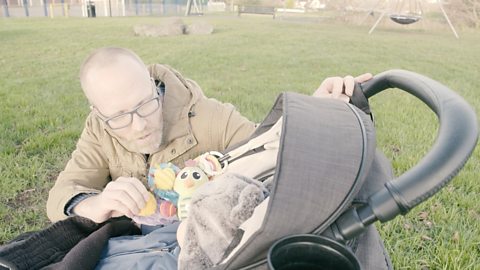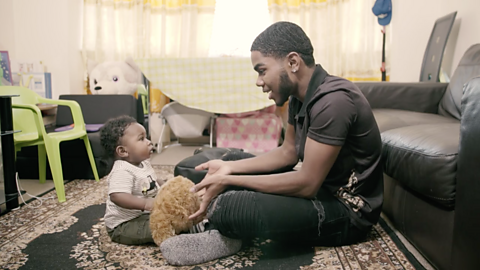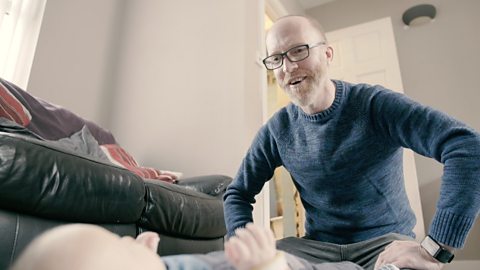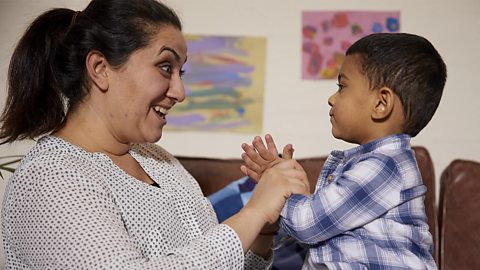Home > Activities > 7 months > 8 months > 9 months
Babbling with your baby is a great way to have fun and bond.
Copying your baby's babbling and cooing helps them learn the rhythm of conversation. It's also great for bonding and spending time one to one.
Watch the video below to see how to make the most of copying your baby's babble.
What are the language benefits of baby babble?
- Babbling with your baby is a fun way to develop their communication and conversation skills.
- Copying their babble back to them helps them understand the way a conversation works.
- This activity helps babies tune into your sounds and watch your mouth movements.
- Responding to baby babble shows your baby that their words and sounds are important.
- Babbling as much as possible gives your baby lots of opportunities to experiment with new speech sounds.
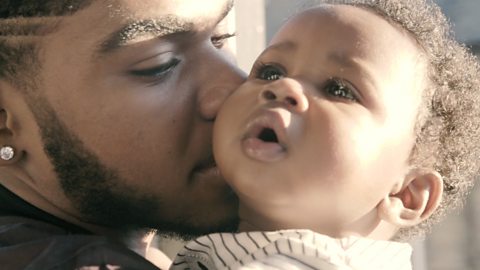
How to respond to your childÔÇÖs babbling
Some babbling is very purposeful and through it your child is sending you a clear message about something that catches their attention.
Copy the sounds your baby makes and wait for them to respond. Once you've copied the sound, you can try adding a simple word that contains the same sound at the end of your sentence.
By waiting for them to respond, you are teaching your baby valuable lessons about tone, pacing, and taking turns when talking to someone else.
Don't interrupt or look away when your baby is babbling. Show you're interested and that your baby can trust you.
When you're babbling back, try to face them and get up close, so they can see your face. This way, they get to watch your mouth movements closely.
This helps their brains process the mechanics of speech, and you might find their mouth copying your movements.
Find out more about baby babble
- Find out what happens in a baby's brain when you babble back?
- Watch this short clip on how baby babble helps babies to start speaking.
- Find out more about the importance of responding to baby babble in our tools for talking film.


